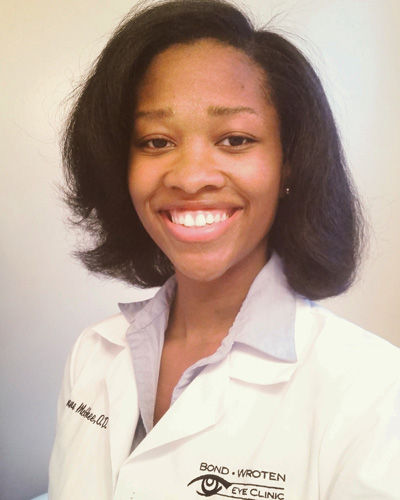

By Breanne McGhee, OD, MEd, FAAO
Daily, we encounter complex clinical cases and are often faced with the question: How can I improve not only this patient’s vision but his or her overall wellness? How can we maximize our skills as primary care optometrists to help patients function in their daily tasks or hobbies?
Interprofessional care (IPC) can help to answer those questions. IPC is a collaborative practice approach amongst a team of multidisciplinary specialists, such as optometrists, medical doctors, pharmacists, educators, occupational therapists, social workers and dentists, all working together to address complex clinical cases by collaborating on the care and management of patients. IPC is designed to allow a team of providers to overlap their scope of practices, unique areas of expertise and knowledge to deliver exceptional patient care.
Ultimately, IPC results in improved clinical outcomes, increased patient and clinician experiences, lower health care costs and reduced medical errors.
This team-based service model initiates synergistic communication and grouped decision-making regarding chronic disease management while having a mutual respect for each professionals’ contribution. IPC is commonly seen within grouped medical settings such as VAMCs, academic health institutions, community centers and hospitals. Traditionally, within these settings, a group of specialists assemble prior to or at the conclusion of a clinic day to discuss treatment goals and plans of shared patients that addresses their overall wellness.
IPC is subsequent to interprofessional education (IPE), which is being incorporated into the curricula of various health professional programs, including optometry across the nation. IPE provides students with interactive clinical experiences and opportunities, such as multidisciplinary diabetes clinics, to learn the value of this patient-centered practice, with the hopes that students will continue this collaborative style well beyond gradation and implement IPC in their respective clinics and communities.
Knowing that optometry plays a significant role in health care, it is important to collaborate with, not just ophthalmology, but with other health and non-health professionals in our communities.
How can primary care optometrists embrace IPC if they do not practice in common grouped medical settings mentioned prior? It is very simple with these four steps.
1. Identify health and non-health professionals in your areas. Introduce yourself and work toward establishing healthy professional relationships.
2. Make known the importance of optometry and its role in health-care especially in the management of the aging patient and chronic systemic disease populations.
3. Refer patients to appropriate specialists (be mindful of insurance). Establish effective communication regarding possible diagnoses and management of shared patients. Discuss continuity of care and follow ups.
4. Send letter correspondences or contact the specialists with a phone call thanking them for their feedback and co-management of patients. This gesture helps to maintain professional relationships.
IPC aims to combat health disparities, increase accessibility and minimize risks of vision loss often comorbid with common chronic diseases such as diabetes, hypertension and cardiovascular disease. It has shown to have positive benefits in effectiveness and delivery of health care.
References
1. Lingard, L., Vanstone, M., Durrant, M., Fleming-Carroll, B., Lowe, M., Rashotte, J., Tallett, S. (2012, December). Conflicting messages: Examining the Dynamics of leadership on interprofessional teams. Academic Medicine, 87(12), 1762-1767.
2. Ponzer, S., Hylin, U., Kusoffsky, A., Lauffs, M., Lonka, K., Mattiasson, A., & Nordström, G. (2004). Interprofessional training in the context of clinical practice: goals and students’ perceptions on clinical education wards. Medical Education, 38(7), 727-736
3. Sterrett, S. E. (2010, December). Becoming an interprofessional community of practice: A qualitiative study of an interprofessional fellowship. Journal of Research in Interprofessional Practice and Education, 1(3), 247-264
Dr. Breanne McGhee is in practice with several Louisiana eye care practices: Chiasson Eye Care Clinic, Bond Wroten Eye Clinic and For Your Eyes Only 20/20. She is currently a PhD candidate in Education and Leadership at Pacific University.



